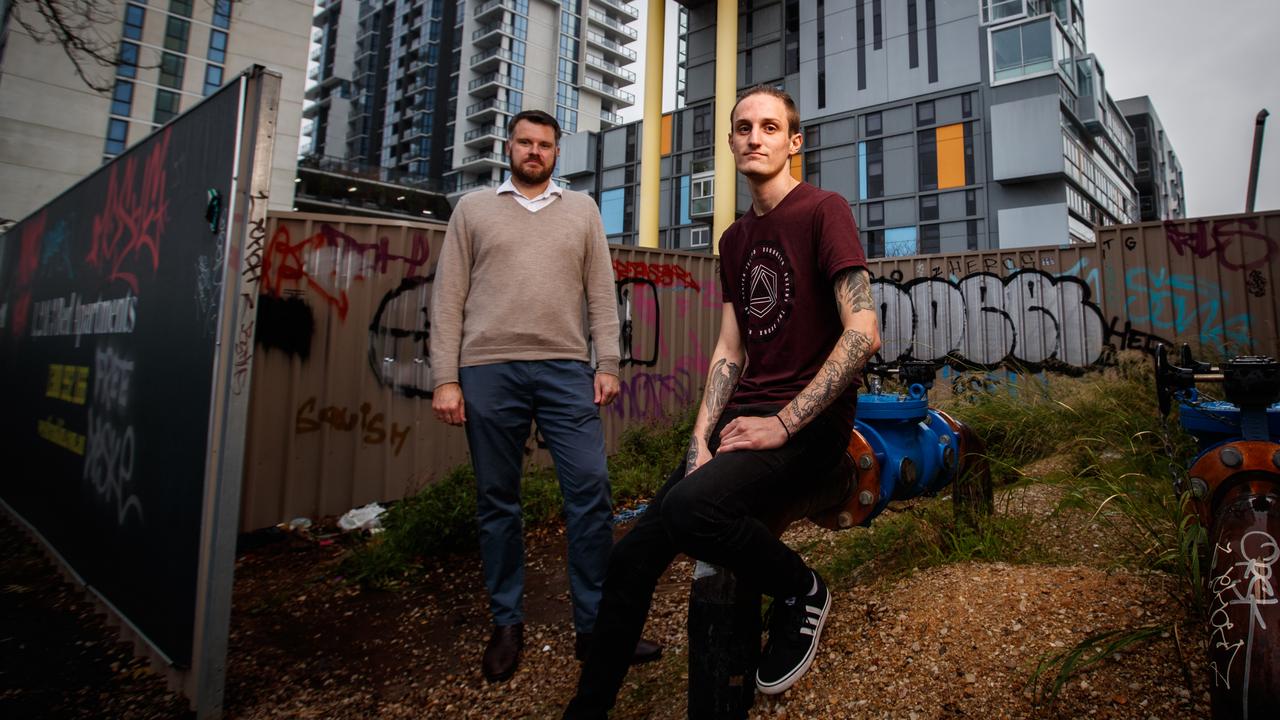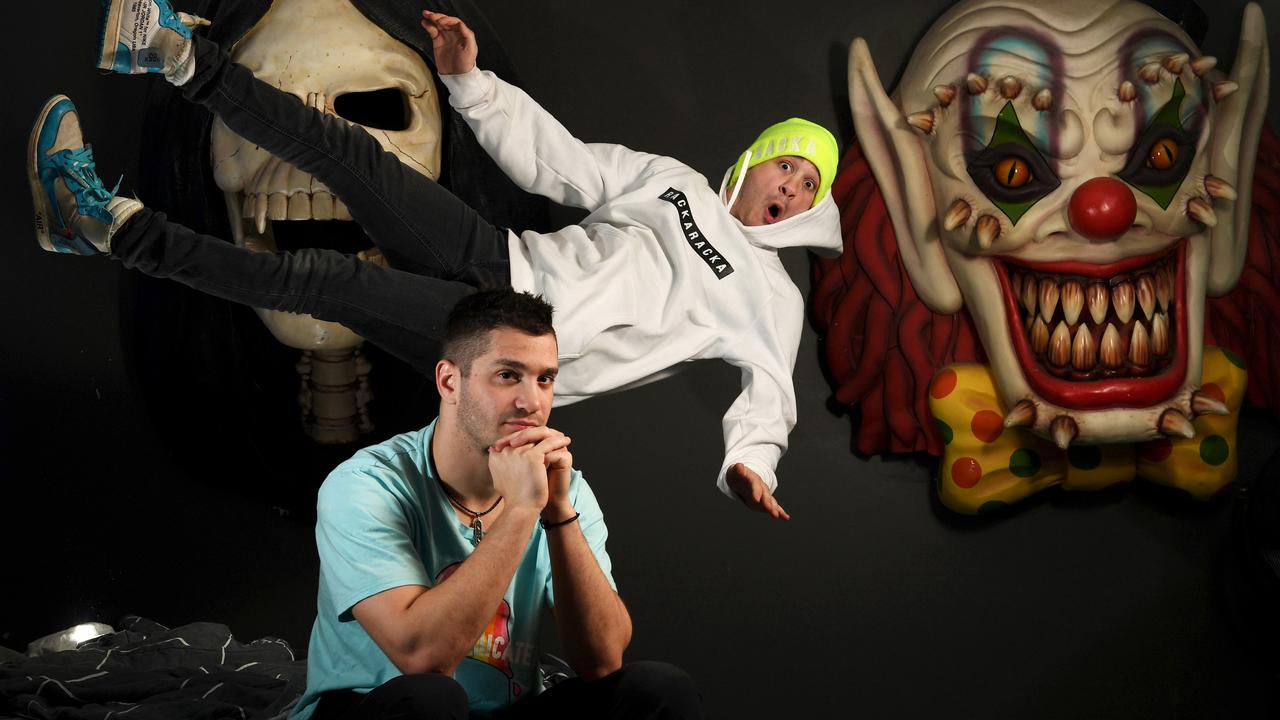What happens when you live?: The Adelaide man who survived a suicide bid and who is now on a mission to save others
FIFTEEN years ago Anthony Hart attempted to take his own life. By a freakish piece of luck, Anthony survived - and from then on, he felt a sense of purpose he had never known before.
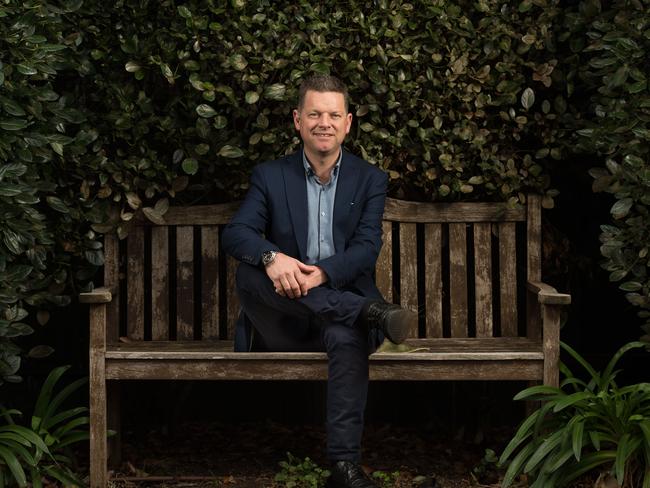
SA Weekend
Don't miss out on the headlines from SA Weekend. Followed categories will be added to My News.
FIFTEEN years ago Anthony Hart attempted to take his own life. By a freakish piece of luck, Anthony survived - and from then on, he felt a sense of purpose he had never known before. He was badly injured and spent months in a wheelchair but when he finally emerged from hospital, Hart had a second chance at life.
The moment he attempted to take his own life was rock bottom, the very depths of a despair that had built slowly during his adult life. From then on, he felt a growing desire to live and a sense of purpose he had never known before.
Today, the South Australian businessman wants to share his strategies for mental health as widely as he can. Too many Australians take their own lives, he says, many more than die on our roads. He looked at his own experience, saw that he had changed his mind, and wants to help others.
But to work through the crisis, he’s had to look back and understand his own problems.
Less than 12 months before the 2003 suicide attempt, Hart had been living with fiancee Zoe in London and working in a well-paid job importing new luxury European cars into the UK, as the EU opened its trade borders. He had been there since January 2000, and business was booming. But after almost four years, he missed the Australian weather and decided to come home to Adelaide.
Then 28, at first he loved being back but after a few months found he was struggling to find the job he was looking for, to connect back into the life he once knew. Hart admits he placed high expectations on himself and the early signs of trouble were there. He began to compare his life to his peers, then steadily lost confidence and started to avoid social situations. At all costs he wanted to hide how he felt from others. He was now also struggling to sleep, something he now sees as a key factor in his unravelling. His mother had noticed and suggested he visit a doctor, which he did.
“I can remember sitting in the waiting room, rehearsing in my mind how I was going to convince the doctor that I wasn’t well, but that I wasn’t going mad,” he recalls. “All I wanted was some medication, but I wasn’t there for any counselling or a long-term solution. I was looking for that quick fix.”
Hart’s mental health continued to get worse, and the fear of anyone finding out about it was adding to his anxiety. Not long after, he was offered a lucrative job opportunity, which required him to spend four weeks training in Sydney, after which he could return to SA. Objectively, it might sound that things were about to get better for Hart but, in reality, he wasn’t well enough to take advantage of the situation.
Through the first week of his training, his heart was racing and he couldn’t sleep. He estimates he got just between one to four hours a night. Loss of sleep can do diabolical things to the mind.
Things came to a head one Friday morning when Hart was asked to leave the course early because his behaviour made him seem drunk or delirious. The fact was, he was just suffering the impact of insomnia, so much so that today he has very little recollection of the conversations that led up to him being told to leave.
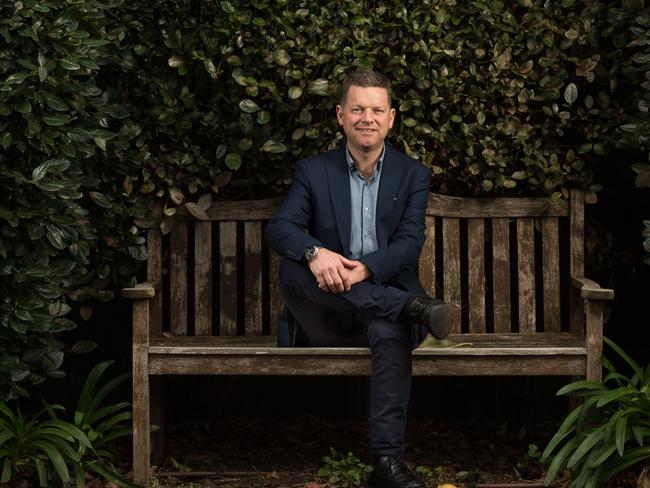
He does know that he went back from North Sydney to his hotel in Circular Quay on a ferry.
“I remember going back to the hotel that the company had put me up in, and going to the 14th floor where my room was,” he says. “I tried to sleep, but I just couldn’t, so I ended up ringing my GP a couple of times, but I couldn’t get through. Then I put my shorts on, and headed to the swimming pool on the roof, as I thought a swim would help me to relax.”
For a reason he doesn’t really understand, instead of entering the water, Hart attempted to take his own life.
He had serious injuries, but the emotional pain is what he says hurt the most.
“I always compare emotional pain to that of physical pain,” Hart says. “Mental pain, in my opinion, is five to 10 times worse than physical pain. For example, I had shattered my ankle, which people could see but it’s what’s going on in your mind that you can’t see, which is why you have to talk.”
Hart also suffered significant internal injuries and severed the nerves from his left arm which connected to his spinal cord. He has lost all sensation from the elbow down, has no nerve function, and metal rods now connect his shoulder to his hand. He also sustained an injury to the back of his brain and can become tired easily, and, at times, his memory and concentration are affected. “I can find it tricky when I have to decipher several conversations,” he says.
In the aftermath, he spent a week in a coma, and another six weeks in intensive care at St Vincent’s Hospital in Sydney. When he was well enough, he was transferred to the Hampstead Rehabilitation Centre in Adelaide where he stayed the next three months. For four months he could move only with a wheelchair.
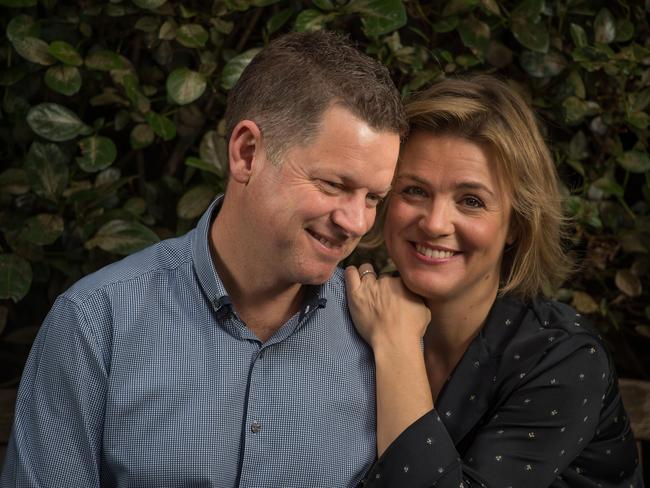
It was during this time something happened that would change his future and ultimately give him a new sense of purpose. As friends and wellwishers visited him in hospital, some started to share their problems with him.
“I think they felt that, because of them knowing what I had been through, they could be vulnerable and confide in me, like I’d already broken the ice,” Hart says.
It was then he realised the importance of his story. With the support of family, he slowly worked his way back. Central to Hart’s recovery was the unwavering support of his wife Zoe. The resolute backing of his father and brother was also critical as he returned to work and gradually, full-time employment. Together they started the family business, rolling out seven PETstock stores across Adelaide.
It was through his own recovery that Hart stumbled across the four principles that helped him to recover and find some emotional peace. He found that by talking about his experience he not only helped himself, but connected with others.
Talking, he says, is the first and most important principle. “You need to confide in someone you trust, and tell them honestly how you are feeling,” he says. “Make sure you can call that person 24/7 during your worst periods of depression. Sometimes, it’s a person on the edge of your network, who is the best fit. Visit your GP, tell them honestly about how bad you’re feeling.”
While he was in the wheelchair, his dad took him to the Unley pool and encouraged him to swim. Before long, he had found a form of exercise that he enjoyed, which also stimulated endorphins that improved his mood. He still swims regularly today, and it forms his second principle.
“Exercise has been so important to me. I still swim four times a week for at least 45 minutes. I also believe that whatever exercise you do, it has to be cardiovascular, and get your heart rate up.”
With his serious brain injury, he cut alcohol completely. He remains an advocate for this, as well as avoiding recreational drugs. He thinks that drugs play a role in perhaps 20 per cent of suicides, and his message is that when under stress, stop or cut back.
“Not everyone wants to go to zero on these things, but if you give it a rest or reduce it, it’s far easier to deal with the challenges in front of you,” he says.
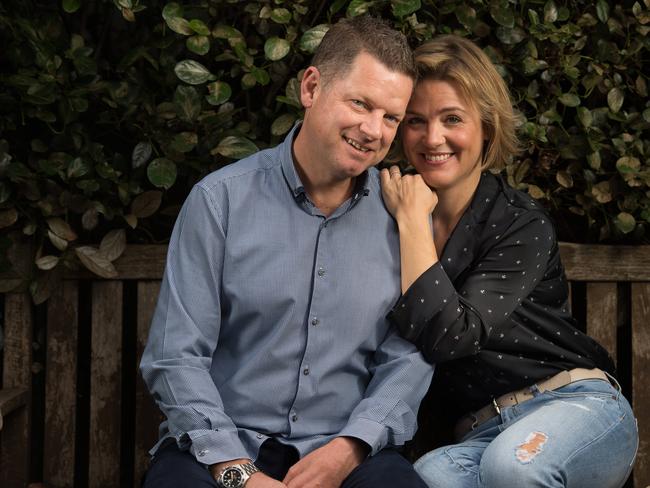
The fourth principle is sleep, based on his understanding that a lack of sleep played a critical role in his inability to make good decisions and be logical back in 2003.
“I’ve told people before, that the days up to the night I tried to take my life, the pain and suffering of living with a mental illness day in, day out was just too much to bear, I so much wanted the pain to go away.”
“A big part of the reason I was so unwell was because I had barely slept in nine days. I also believe that by following the other three principles, you will be more tired at night and will get good consistent sleep.”
Reduce alcohol, Exercise, Sleep and Talk. REST.
Around six years ago, Hart started to write these principles down and tell people about them. But after talking to a friend who lost a long-time co-worker who took his life on his rural property, he decided he needed to act.
“Gavin Schuster lost a worker to suicide on his farm at Freeling,” Hart recalls. “He asked me if I would be interested in sharing my story at a ‘Save our Mates’ night up there. I’d set myself the goal of conquering my fear of public speaking, so it came at the right time. It involved a one-hour talk, but this was followed by four hours of questions, with almost 150 men in attendance. It had an impact, as it came from a lived experience, instead of a clinical one.”
Since 2016, the married father-of-three has told his story at 25 community or corporate events and has also distributed a booklet with his four principles to more than 3500 people. The booklet, Lifeback Tracker, is a simple way for men to keep watch over how they are going in their lives and it works as an early intervention tool.
“Our journey started with the booklet,” he says. Hart is seeking interested commercial partners to spread his mesage further. His family’s business has been supportive, allowing him the opportunity to follow his passion. He’s grateful for that but feels now he has to make a choice.
“I am now single-minded on making an impact on this appalling social issue,” he says. “We need to understand that mental health issues need to be talked about just like physical ones, not as something different.
“Suicide is the biggest killer of males between 15 and 44 in Australia, and 75 per cent of all suicides are men.”
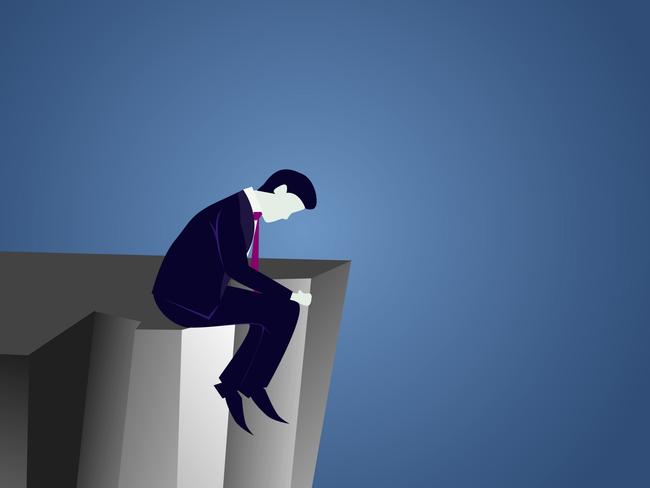
HART’S BIGGER VISION
Hart hopes to use rubber message bracelets bearing his four-point plan as way to remind people what matters.
“The first band has the word TALKING written on it — do this with your GP, confide in a close mate, and you’ve taken a big step forward,” he says. “Men have to talk. Sixty-five per cent of all male suicide victims never seek any help, because they feel embarrassed. We need to change that.”
A month later the next band will be sent with the word EXERCISE, the third band has REDUCE ALCOHOL, and the fourth SLEEP.
Hart says preventing suicide is something we all have the power to influence. In the mid-1970s the State Government introduced measures to reduce the state’s road toll, which had peaked at 382 fatalities in 1974. By 2016, it had been slashed to a state low of 87 but the SA suicide rate was three times this number. Nationally, 2866 people committed suicide in Australia in 2016, more than twice the road toll.
Hart is convinced the State Government’s five-year suicide prevention plan, launched in March, will not succeed unless community, businesses and governments address this issue in the same aggressive way they addressed the road toll in 1974.
With his four-point plan, wristbands and a new website, he is determined to help as much as he can. “It’s very difficult to change behaviour overnight,” he says. “To help encourage the concept, we’ve made four bands, with a ‘pay it forward’ type initiative built into it. We would like to encourage people to promote the concept by passing them on to someone who they think would benefit.” lifebacktracker.com
IF YOU NEED HELP CONTACT LIFELINE 13 11 44,
BEYONDBLUE 1300 224 636

